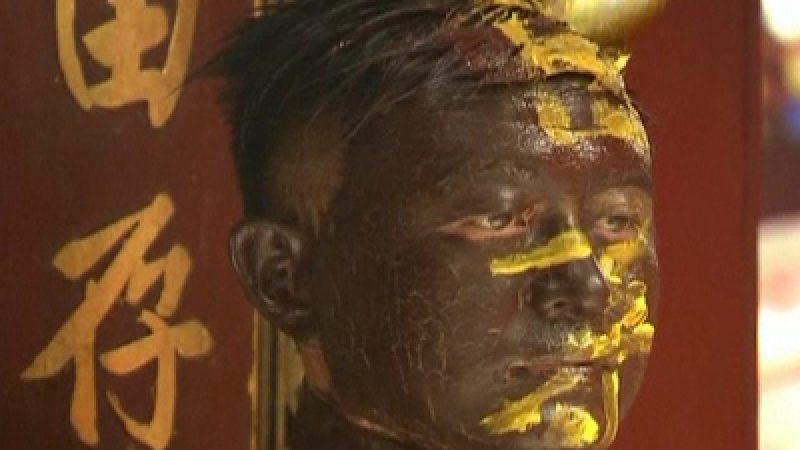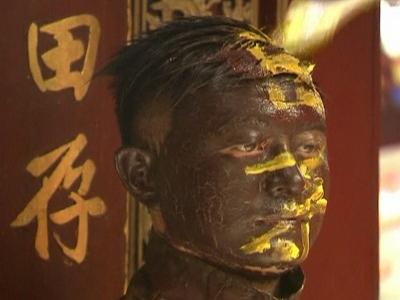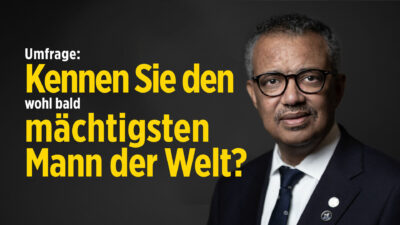
Chinese Artist Disappears into His Surroundings

Now you see him, soon you won’t.
Chinese performance artist Liu Bolin is known locally as ‚the invisible man‘, because of his habit of painting himself into his surroundings.
Liu has vanished into many nooks and crannies around Beijing—his latest location… the intricate doorway of a traditional courtyard house, a typical sight in Beijing.
37-year-old Liu says his art represents the state of humanity.
[Liu Bolin, Artist]:
„Now my art is cultural, it represents the diminishing humanity in today’s society. I use my art to be retrospective on culture, the environment and fast economic development.“
It took three assistants and four hours of painstaking stillness to finish the process.
15-year-old student Meng Yunan says she didn’t notice Liu at all until she saw him move.
[Meng Yunan, Student]:
„I think it’s very odd. I didn’t notice a man was standing there so I was surprised when he moved. I also think the colors are very beautiful.“
Each of Liu’s works carries a message. He said his transformation into a part of Beijing’s ancient architecture demonstrates the importance of accepting new forms of art, while at the same time preserving the old.
But not everyone appreciated his perspective, including one Taoist.
„It is quite surprising to see this. I do not understand the art, painting color onto your body. But after looking at it for a while, you can see that the colors are blending with the building. In Taoism, everything in nature is considered beautiful so I suppose his art is beautiful.“
Over the last four years, Liu has taken his art abroad– he has exhibited his work in the UK, France and Italy.
His plans for his next location are even more ambitious. Liu plans to almost ‚vanish in mid-air‘ while on an airplane.
 (NTDTV)
(NTDTV)




























vielen Dank, dass Sie unseren Kommentar-Bereich nutzen.
Bitte verzichten Sie auf Unterstellungen, Schimpfworte, aggressive Formulierungen und Werbe-Links. Solche Kommentare werden wir nicht veröffentlichen. Dies umfasst ebenso abschweifende Kommentare, die keinen konkreten Bezug zum jeweiligen Artikel haben. Viele Kommentare waren bisher schon anregend und auf die Themen bezogen. Wir bitten Sie um eine Qualität, die den Artikeln entspricht, so haben wir alle etwas davon.
Da wir die Verantwortung für jeden veröffentlichten Kommentar tragen, geben wir Kommentare erst nach einer Prüfung frei. Je nach Aufkommen kann es deswegen zu zeitlichen Verzögerungen kommen.
Ihre Epoch Times - Redaktion